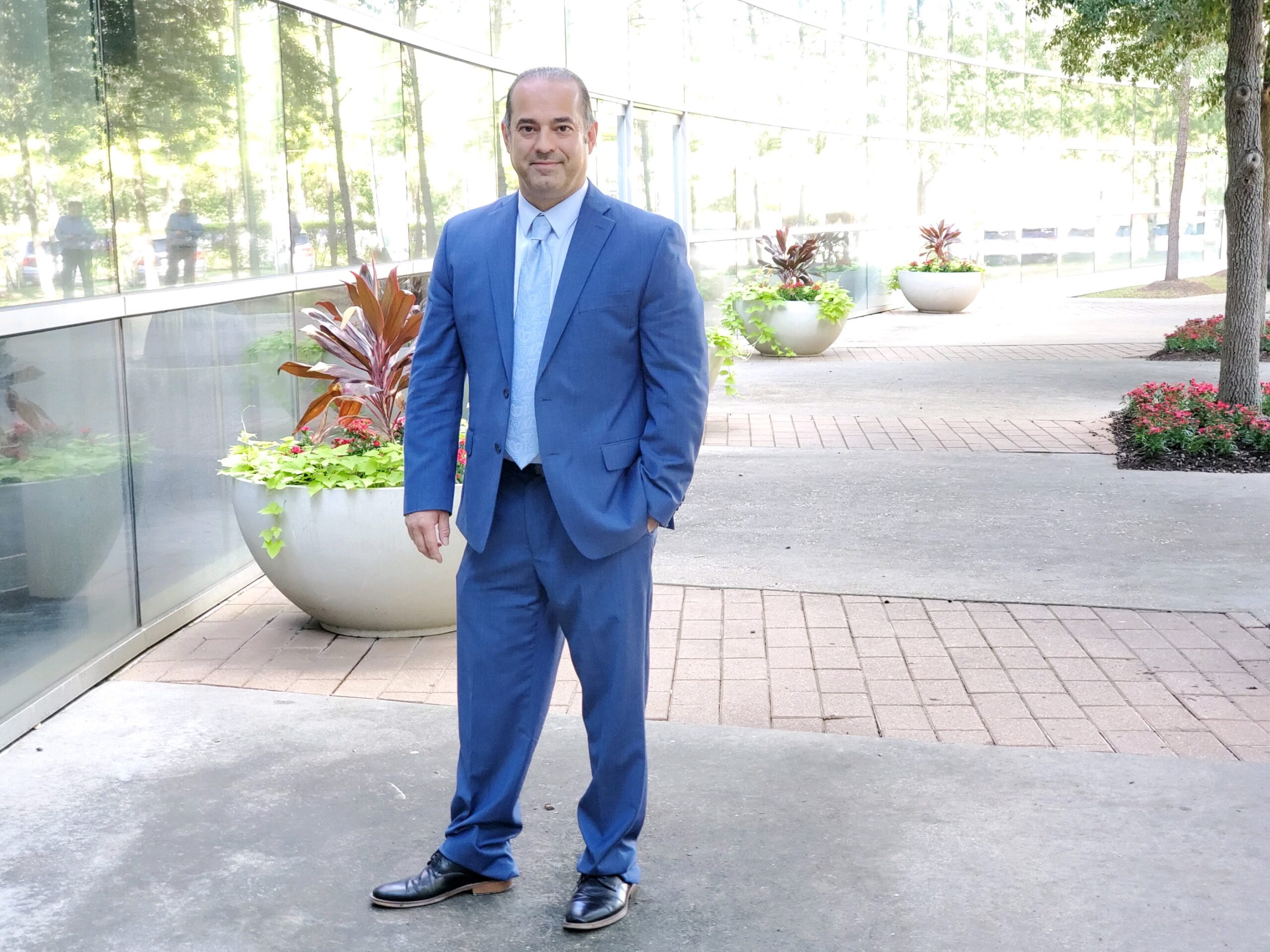
Mike DiCosola may be a senior with a double major in aviation transportation systems and unmanned systems, but he is also a business owner. As the CEO and founder of his company, Drone Industry Systems Corporation (DISC), he is the inventor of the first Smart Drone Rooftop and Ground Airport/Vertiport.
“I’m the CEO of Drone Industry Systems Corp,” said DiCosola. “I have a unique background as a former owner of a data storage CD/DVD and USB manufacturing company and have also been a general contractor and now developer for years.”
DiCosola said that when he heard about drones having the possibility to go mainstream in the commercial sector a little over seven years ago, he thought about the current infrastructure for aviation as a passenger and the delivery cargo as a consumer.
“I realized there was no current structure that would create a sustainable commercial drone infrastructure and delivery process that was in existence,” said DiCosola. “So, I decided to research what was out there that was currently attempting to solve the issue of autonomous logistics that was commercially achievable and sustainable.”
He explained that models he’s seen like the Hive or the Zeppelin from Amazon seemed extremely costly for brick and mortar development, which would require the following: huge investments in land, red tape for development approvals or in the alternative, an extremely expensive and high safety risk Zeppelin and flying overhead with an operator that would drop swarms of drones out in the sky to deliver packages. He has also seen drones sitting on a light post, waiting for delivery.
“After playing out the process of a fleet of drones delivering cargo first, then eventually people, I knew right there that there was a major gap in thinking out an infrastructure that would be able to sustain the autonomous drone delivery infrastructure and it needed to be thought out and planned properly in order for it to succeed,” said DiCosola. “That is when I decided to design a utility process for an autonomous drone delivery infrastructure, that would allow for interoperability, scalability and the repurposing of existing infrastructures.”
As an Intellectual Property developer of both Urban Air Mobility (UAS) and Advanced Air Mobility (AAM) drone and Vertical Take-Off and Landing (VTOL) infrastructure, DiCosola’s company DISC focuses on the next generation of unmanned systems and vehicles. These consist of drones and VTOLs, which are the future of transportation and delivery.
“However, a well thought out infrastructure is an absolute necessity to make this a reality,” said DiCosola. “We have a portfolio of domestic and international IPs that surround itself around this autonomous infrastructure and the solutions that make it a possibility.”
Their portfolio includes advertisement systems or delivery drones, disposable delivery containers for delivery drones, smart mailbox landing pad and universal computing nodes in a distributed computing environment.
When DiCosola started designing the utility process for the autonomous infrastructure, he had realized that he needed to truly understand the current piloted aviation in National Airspace (NAS). After realizing this, he felt that it was necessary to go back to school for a double degree in Aviation Transportation Management and in Unmanned Systems.
“After careful consideration, I felt Lewis University was the place I would best develop the skills needed to fill in the gaps of my vision of merging the existing operational structure of aviator operated aviation, with autonomous aviation operations and infrastructure,” said DiCosola. “I’m currently enrolled in the Lewis 4+1 Master’s program, with a goal to eventually have my PhD.”
DiCosola’s company is partnered with another company that deals with creating new mobility technology that will change the way people move and how goods and services are delivered. That company is TruWeather Solutions (TWS) and they make a SaaS system (software as a service) for the drone industry. The focus of their software is weather situational awareness from a surface to 400 ft., which allows for Beyond Visual Line of Site (BVLOS) operations. DISC has IPs called the Weather Data Exchange, the smart drone rooftop and ground airport and the node centric mesh network.
“These IPs were an interest of TWS because we will be able to take weather data gaps in the aviation weather planning world and start making a commercially sustainable model that allows for companies to want to invest in sensors as a data supplier to our node centric mesh network,” said DiCosola. “TWS joint ventured with DISC so their sensor manufacturers and end users can benefit using the Weather Data Exchange with enhanced weather situational awareness by closing the data gaps that don’t have sensors in those areas and by using a way to subsidize the cost to do it.”
At its core, DISC is an innovative company that believes in making a system that is interoperable with other systems, hardware and software. This will allow for no one to be alienated as all drones can work in this system.
“In order for an infrastructure to work, all qualified manufacturers of drones are able to participate in the system,” said DiCosola. “We support this theory and welcome all partners to the table for R&D support.”
In terms of connecting his company to Lewis, he would like to see the school adopt the first of DISC’s Smart Drone Rooftop and Ground Airport/Veriports. Since many other states like North Dakota and New Jersey are already investing in smart airport technology besides Illinois, DiCosola thinks we should also be investing in this program.
“I would love to see Lewis University adopt the first of DISC’s Smart Drone Rooftop and Ground Airport/Veriports,” said DiCosola. “DISC can help facilitate that in collaboration with Lewis and the support of their Aviation department and FAA approvals.”
Photo Credit: Lisa Tinnesz
